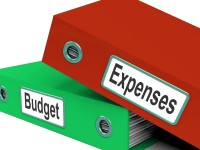For me at least, what makes a budget item a necessary or discretionary expense is whether I can accept living indefinitely without it and not regret it. At its most mundane, I would regret never eating steak — but I can (and do) live indefinitely without eating porterhouse or filet mignon. At the other end of the spectrum, I would regret living in an apartment — but I can (and do) live indefinitely in a modest country home. Differentiating between what one must have as a lifestyle baseline and what would be nice for one to have is a subjective process. Here is where that thinking has led in my own case.
Housing (location, size, type and features) is a really major expense for everyone. And so it has been for me. I have concluded that I “need” a house located further south (than Maryland) for milder winters… with enough land around it to buffer me from my neighbors… with a garage/workshop to shelter my vehicle and do DIY work… and with a basement for storage. Without these elements, my retirement housing would not really work for me. So — for me — having these housing features is a necessary (that is, baseline) budget expense. But I do not need a fancy address, or a swimming pool, or an urban location, and so on. Each one of those would be a discretionary expense to me.
Transportation is another major budget item for almost everyone, including me. Here I have concluded that I just need reasonable reliability, safety and driving comfort. I will not pay with 10 years of my remaining life for vehicular newness, prestige, status or any other intangible feature of a new or so-called luxury vehicle. So I have excluded a car payment from my baseline retirement budget because it would definitely be a discretionary expense for me.
And so on line by line down my entire budget.
This baseline versus discretionary expense analysis has led me to continuously optimize my spending — budget line item by line item — so that I have now lowered my baseline budget by 42% from what it used to be without giving up my baseline lifestyle. That in turn has made a greater part of my income available for discretionary expense, but in a more flexible way not tied to any fixed outlay such as a monthly boat payment. But it goes deeper than that.
This analyzing and differentiating of necessary versus discretionary expense enabled me to determine, in detail, what my version of a baseline no-regrets lifestyle requires and what its costs are. Doing that led me to lower my “retirement stash magic number” to such a degree that I became financially independent much sooner and thereby added many, many years of retirement freedom to my life. And how do you put a price on that?
The takeaway: Every expense is either a baseline necessary expense or an optional discretionary expense. Being aware of the difference is a crucial step towards the achievement of financial independence. But knowing which expenses are baseline and which are discretionary is not always obvious – and it’s always subjective. So each expense needs to be analyzed and thought through in the context of one’s own lifestyle values. Going through that process — and applying what is learned from it — will pay off in a much faster track to financial freedom and life satisfaction.
# # #
image courtesy of Stuart Miles at FreeDigitalPhotos.net








So true! and well written.
Thank you, soccerluv!
I read somewhere that if you don’t write your own story, someone else will and I think this is a perfect example. If you don’t *know* what it is that is truly important to you, you’ll make choices based on what the advertisers tell you is important.
I know what’s important to me and make my choices accordingly. I might not have the financial freedom yet, but I’ve got bucket loads of life satisfaction!
Cheers,
Good for you, Diane!
It’s very important to know what’s important to you when it comes to living arrangements. That’s a burning question for me as I am 5-6 years from retirement, and I know I need to downsize to accommodate my budget. Property taxes are also a big piece of the equation. I am paying $562 each month, and this expense will only go up in the future. Therefore, it’s going to be important to select a new state where taxes are not as expensive. The article gives me a lot to think about. Any suggestions on great retirement locations?
Good point on making a choice about how expense tracking is crucial. Once you have some margin in your financial life, you can do more with your income. But to get to that margin point, you have to think about what can be eliminated.
“If I knew then what I know now”. My wants are nil and my needs are basic. Life is to be enjoyed and it can not be done with constant money worries. The old saying was “what to be with $1,000,000? Smart man says, “Save and invest it”, Foolish man says,”Pay it on bills as far as it would go”
I like the million dollar saving line!
Our budget is pretty basic, but we have added a few non-essential things back in over time. Our big “splurges” now are having someone treat our lawn, a slightly larger food budget (went from $500 to $600 per month) and some money for travel. Still, it’s important to know what is necessary and what isn’t. I could cut those things out if I ever needed to.